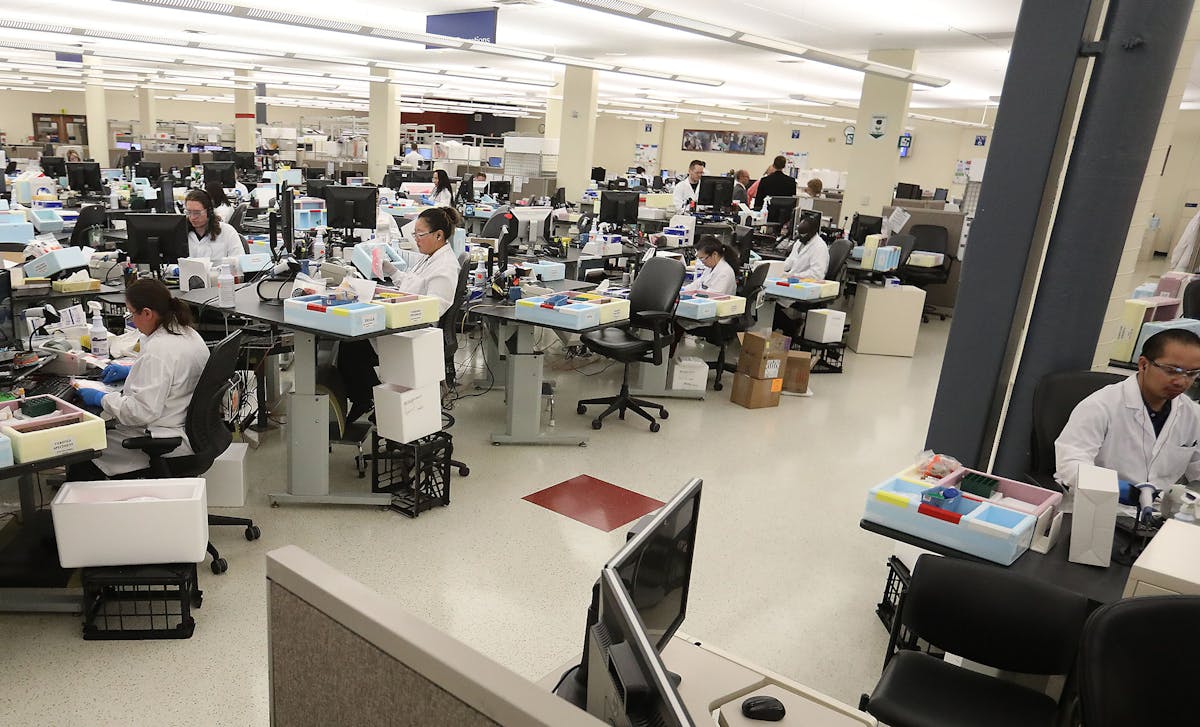Minneapolis and St. Paul are requiring people to show proof of vaccination or a negative COVID-19 test to dine in bars, restaurants and other places where food and drinks are served. The policy took effect Jan. 19. What you need to know:
Where do people need to show proof of vaccination or a negative COVID-19 test?
Licensed businesses where food and beverages are sold for indoor dining. That could include bars, restaurants and coffee shops, as well as movie theaters, sports stadiums, and other venues for large events. In St. Paul, officials estimated just one-third of restaurants would be subject to the mandate because the city only licenses those that sell alcohol.
What about in skyways or other public indoor areas?
The requirements do not apply to skyways or other places where people might congregate to eat takeout, provided those are separate from the businesses preparing the food and drinks. They do not apply to grocery stores, convenience stores and other places where people typically buy food to take elsewhere.
Why aren't other locations where people gather included?
The mayors and health officials in both cities said they chose to focus on locations where people would be removing masks to eat or drink. They noted both cities have other policies requiring people to wear masks in locations where large groups of people are likely to gather.
Who needs to show proof of vaccine or a negative COVID-19 test?
People who are eligible to get a vaccine — those 5 and older — must provide proof of immunization or a negative COVID-19 test. Minneapolis originally required children ages 2 to 4 to provide proof of a negative test, but later rescinded that requirement.
Are there exceptions for people with medical or religious exemptions?
No. The mayors in both cities said they did not include those exceptions, because there is an option to provide proof of a negative test instead of getting vaccinated.
What about employees?
The cities' requirements don't apply to workers but businesses are free to enact their own, stricter rules, if they wish. The mayors in both cities originally required hospitality workers to align with federal vaccination-or-testing rules, but the U.S. Supreme Court struck down the bulk of those requirements.
How many shots do people need to meet the vaccination requirements?
People need to provide proof that they received their first series of shots, either two doses for the Pfizer or Moderna vaccines or one dose for the Johnson & Johnson vaccine. Both cities will also accept proof of vaccines administered outside the United States, such as AstraZeneca or Covishield. People need to have completed their final shot in the series at least two weeks ago. At this time, neither city is requiring proof of a booster shot.
What documents will be accepted as proof?
People can show an "official vaccine record," such as a photo or the hard copy of their vaccination card. They can also use some third-party phone apps, such as Docket. In St. Paul, people 18 and older will also have to show a photo ID. People are not required to show ID in Minneapolis.
What types of COVID-19 tests will be accepted, and what counts as proof?
Both cities are requiring people to show proof of a negative PCR or antigen test taken by a medical professional within the past 72 hours. Rapid at-home tests will not be accepted. "There is really no way if you're taking a rapid test at home to be able to match up the results with the actual person taking the test," said Heidi Ritchie, interim health commissioner in Minneapolis. "It's very easy to take a picture of the strip that is your testing results and share it with other people and put it on Facebook or whatnot."
When did the policy take effect?
Jan. 19 at places where tickets aren't required, and Jan. 26 for ticketed events. St. Paul's order will expire in 40 days, at which point Carter said the city will re-evaluate the policy. Frey didn't specify an end date but said he expects the new requirements to be temporary.
Seven Minneapolis restaurant owners sued Frey and the city seeking to block requirements there — but a judge denied their request Jan. 29.
Who enforces this?
Businesses are responsible for making sure their customers show proof of vaccination or a negative COVID-19 test. The cities' licensing divisions will investigate complaints about businesses that don't appear to be complying. Officials in both cities said they hope to focus first on training businesses to enact the requirements, but they could face fines or other penalties if they have multiple violations.
Who put these policies in place?
Minneapolis Mayor Jacob Frey and St. Paul Mayor Melvin Carter issued executive orders. The mayors said in a virtual news conference that they hoped the new policies would encourage people to get vaccinated and prevent widespread closures as the omicron variant continues to create rising COVID-19 cases in both cities. "I can't emphasize this enough," Frey said. "This is a critical next step to avoid closures. We want to stay open, and we need to stay safer."
Note: This story has been updated.

Baseball Metro Player of the Year packs up his five tools and leaves

Prep baseball 2024: 35 Minnesota stars who the recruiters covet
Police searching for St. Paul home intruder who raped, robbed woman

Friend heard money, relationship woes from man tied to Chanhassen killing who took his own life

